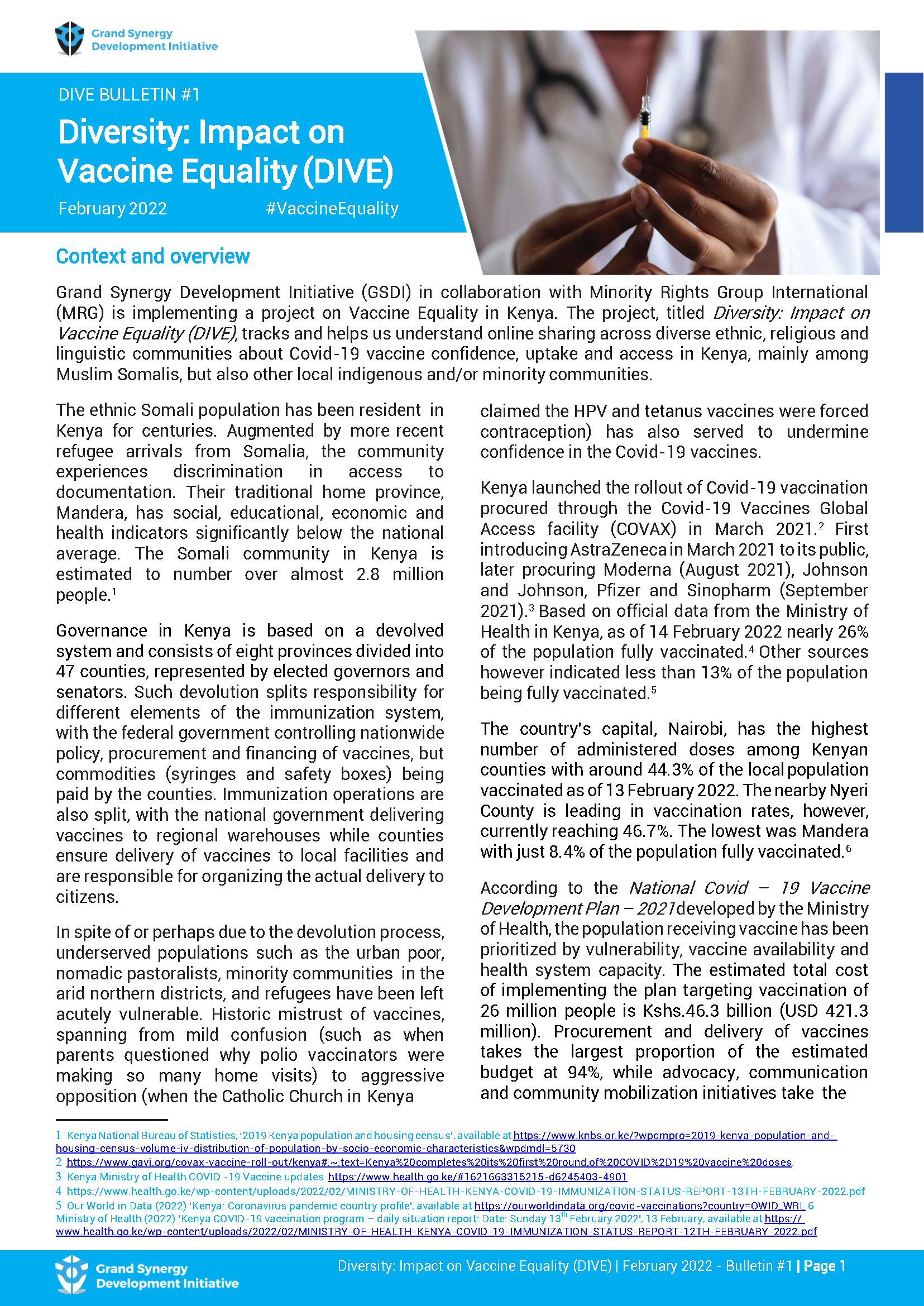
Diversity Impact on Vaccine Equity in Kenya
This resource was produced by MRG’s partner(s) with MRG. It remains the property of the organization(s) in question and does not necessarily reflect the views of MRG.
The impact of Covid-19 has become complex and dynamic in different levels. With more opportunities for a few and more challenges for the rest; it is also noted that Kenya’s economy has demonstrated resilience to the Covid-19 shock as one of the faster recoveries among Sub-Saharan African countries. But even as we celebrate the fastest growing Gross Domestic Product (GPD) the same cannot be true with GDP per capita of the Nation. Since 2014, Kenya has been ranked as a lower middle income country because its per capita GDP crossed a World Bank threshold. While Kenya has a growing entrepreneurial middle class and steady growth, its economic and development trajectory could be impaired by weak governance and corruption. This reality has in many ways affected the health sector and the impact this can be detected by the level of confidence citizens have on the authority about Covid-19 vaccines.
To better understand the Covid-19 vaccine administration dynamics, Grand Synergy Development Initiative (GSDI) in partnership with Minority Rights Group International (MRG) implemented a project titled Diversity: Impact on Vaccine Equality (DIVE) as an intervention initiated to better understand the impact of the pandemic across ethnic minorities and religious communities in Kenya. This was achieved through a study conducted via online sentiment monitoring using social media monitoring and listening tools including CrowdTangle.The DIVE project made significant achievements within a short period of time that provides a better understanding on areas of improvement in the health sector. Through this study we were able to analyze accurate and timely information about Covid-19 vaccine uptake and confidence across religions, ethnicity and geographical diversity where majority and minority communities are located. Our findings will provide room for informed advocacy and policy review where public health interventions are involved. These findings are useful to policy makers, researchers, health workers, civil society actors and the media.
This Bulletin is organized as follows:
- Key findings – This section summarizes the key finding of the study in 6 bullet points elaborating the proportions under the five indicators (access, reservation, distrust in authority and level of confidence of the participants of the DIVE radio talk show and comments analyzed from Facebook).
- Country context – The country context provides a glance of the situation of the country. Here the proportion of the fully vaccinated adults in the country is presented.
- Key findings – In this second key findings section, detailed results of the study are presented under the four indicators. Relevant qualitative finding from radio talk shows and facebook comments and graphic images projecting the proportion of the finding are also presented therein.
- Research (approaches and methodology) – The methodology of the study is elaborated in session with some relevant findings of the study.
- Conclusion – The final session develops an insight of the entire study and some relevant area of interest that the study is addressing.
The findings of this research indicate the need for determined interventions to counter negative narratives and misinformation about the authorities’ commitments on vaccine administration to stem their impacts from further undermining the exercise.
This content was published in the context of the programme ‘Diversity: Impact on Vaccine Equality’ (DIVE). Learn more >